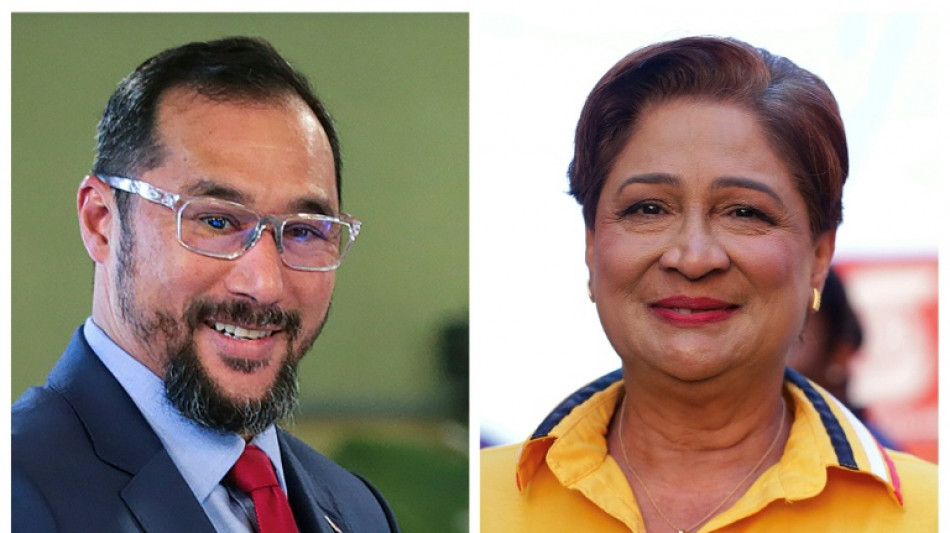

Trinidad and Tobago votes for parliament, PM, with opposition in lead
Trinidad and Tobago votes in parliamentary elections Monday that will determine whether Prime Minister Stuart Young stays in power as the twin-island Caribbean nation battles an economic slump and a rise in gang violence.
Voters will choose the 41 members of the lower House of Representatives for a five-year term.
Any party that emerges with a majority of seats will form a new government with its leader as prime minister.
If none does, a coalition government is likely in the nation known for attracting tourists with its carnival, nature and sandy beaches.
Former energy minister Young, 50, took over as prime minister earlier this month after Keith Rowley resigned to make way for new blood.
But his center-left People's National Movement (PNM) has been lagging in polls behind the centrist United National Congress (UNC) of former prime minister Kamla Persad-Bissessar, 73.
"We are peaking at the right time," Persad-Bissessar -- who has campaigned on promises of higher public wages -- she said ahead of Monday's vote.
Unrealistic promises, according to Young, who said "there is no way that a government, any government, could afford" the additional $2-billion bill this would entail.
Trinidad and Tobago has a population of 1.4 million people, of whom just over 1.1 million are eligible to vote Monday at 2,130 polling stations countrywide.
Police commissioner Junior Benjamin has warned of intelligence suggesting "that things are afoot to disrupt the electoral process," without providing details.
Since December, the country was under a state of emergency that ended this month. It was declared to contend with a rise in gang-related killings.
Official data shows more than 600 homicides committed in the nation last year, many of them linked to criminal gangs.
According to a US Department of State report from March, the murder rate of 37 per 100,000 people made Trinidad and Tobago the sixth most dangerous nation in the world.
The report said Latin American-based transnational criminal organizations operated in, and trafficked illegal goods through, Trinidad.
"The country’s southern border, which is approximately 10 miles from the Venezuelan coast, remained porous and vulnerable to illegal migration, drug trafficking, and human trafficking and smuggling," it said.
"Venezuelan organized criminal organization and designated terrorist organization Tren de Aragua has been known to exploit this proximity for the transit of personnel and material."
The Caribbean's second-largest producer of natural gas, Trinidad and Tobago has also been battling an economic downturn blamed partly on a decline in production.
It had been banking on exploitation of the Dragon gas field in nearby Venezuelan waters, but has seen its licence withdrawn by the administration of US President Donald Trump under renewed sanctions against that country.
P.Barth--BP


